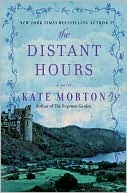Cleopatra's Daughter
The marriage of Marc Antony and Cleopatra is one of the greatest love stories of all time, a tale of unbridled passion with earth-shaking political consequences. Feared and hunted by the powers in Rome, the lovers choose to die by their own hands as the triumphant armies of Antony’s revengeful rival, Octavian, sweep into Egypt. Their three orphaned children are taken in chains to Rome; only two– the ten-year-old twins Selene and Alexander–survive the journey. Delivered to the household of...
Search in google:
The marriage of Marc Antony and Cleopatra is one of the greatest love stories of all time, a tale of unbridled passion with earth-shaking political consequences. Feared and hunted by the powers in Rome, the lovers choose to die by their own hands as the triumphant armies of Antony’s revengeful rival, Octavian, sweep into Egypt. Their three orphaned children are taken in chains to Rome; only two– the ten-year-old twins Selene and Alexander–survive the journey. Delivered to the household of Octavian’s sister, the siblings cling to each other and to the hope that they will return one day to their rightful place on the throne of Egypt. As they come of age, they are buffeted by the personal ambitions of Octavian’s family and court, by the ever-present threat of slave rebellion, and by the longings and desires deep within their own hearts. The fateful tale of Selene and Alexander is brought brilliantly to life in Cleopatra’s Daughter. Recounted in Selene’s youthful and engaging voice, it introduces a compelling cast of historical characters: Octavia, the emperor Octavian’s kind and compassionate sister, abandoned by Marc Antony for Cleopatra; Livia, Octavian's bitter and jealous wife; Marcellus, Octavian’s handsome, flirtatious nephew and heir apparent; Tiberius, Livia’s sardonic son and Marcellus’s great rival for power; and Juba, Octavian’s watchful aide, whose honored position at court has far-reaching effects on the lives of the young Egyptian royals. Selene’s narrative is animated by the concerns of a young girl in any time and place–the possibility of finding love, the pull of friendship and family, and the pursuit of her unique interests and talents. While coping with the loss of both her family and her ancestral kingdom, Selene must find a path around the dangers of a foreign land. Her accounts of life in Rome are filled with historical details that vividly capture both the glories and horrors of the times. She dines with the empire’s most illustrious poets and politicians, witnesses the creation of the Pantheon, and navigates the colorful, crowded marketplaces of the city where Roman-style justice is meted out with merciless authority. Based on meticulous research, Cleopatra’s Daughter is a fascinating portrait of imperial Rome and of the people and events of this glorious and most tumultuous period in human history. Emerging from the shadows of the past, Selene, a young woman of irresistible charm and preternatural intelligence, will capture your heart.From the Hardcover edition.Publishers WeeklyMoran's latest foray into the world of classical history (after The Heretic Queen) centers upon the children of Marc Antony and Cleopatra . After the death of their parents, twins Alexander and Selene and younger brother Ptolemy are in a dangerous position, left to the mercy of their father's greatest rival, Octavian Caesar. However, Caesar does not kill them as expected, but takes the trio to Rome to be paraded as part of his triumphant return and to demonstrate his solidified power. As the twins adapt to life in Rome in the inner circle of Caesar's family, they grow into adulthood ensconced in a web of secrecy, intrigue and constant danger. Told from Selene's perspective, the tale draws readers into the fascinating world of ancient Rome and into the court of Rome's first and most famous emperor. Deftly encompassing enough political history to provide context, Moran never clutters her narrative with extraneous facts. Readers may be frustrated that Selene is more observer than actor, despite the action taking place around her, but historical fiction enthusiasts will delight in this solid installment from a talented name in the genre. (Sept.)Copyright © Reed Business Information, a division of Reed Elsevier Inc. All rights reserved.
CHAPTER ONE\ *\ ALEXANDRIA\ August 12, 30 BC\ WHILE WE waited for the news to arrive, we played dice. I felt the small ivory cubes stick in my palms as I rolled a pair of ones. "Snake eyes," I said, fanning myself with my hand. Even the stir of a sea breeze through the marble halls of our palace did little to relieve the searing heat that had settled across the city.\ "It's your turn," Alexander said. When our mother didn't respond, he repeated, "Mother, it's your turn."\ But she wasn't listening. Her face was turned in the direction of the sea, where the lighthouse of our ancestors had been built on the island of Pharos to the east. We were the greatest family in the world, and could trace our lineage all the way back to Alexander of Macedon. If our father's battle against Octavian went well, the Ptolemies might rule for another three hundred years. But if his losses continued_._._.\ "Selene," my brother complained to me, as if I could get our mother to pay attention.\ "Ptolemy, take the dice," I said sharply.\ Ptolemy, who was only six, grinned. "It's my turn?"\ "Yes," I lied, and when he laughed, his voice echoed in the silent halls. I glanced at Alexander, and perhaps because we were twins, I knew what he was thinking. "I'm sure they haven't abandoned us," I whispered.\ "What would you do if you were a servant and knew that Octavian's army was coming?"\ "We don't know that his army is coming," I snapped, but when the sound of sandals slapped through the halls, my mother finally looked in our direction.\ "Selene, Alexander, Ptolemy, getback!"\ We abandoned our game and huddled on the bed, but it was only her servants, Iras and Charmion.\ "What? What is it?" my mother demanded.\ "A group of soldiers!"\ "Whose men?"\ "Your husband's," Charmion cried. She had been with our family for twenty years, and I had never seen her weep. But as she shut the door, I saw that her cheeks were wet. "They are coming with news, Your Highness, and I'm afraid—"\ "Don't say it!" My mother closed her eyes briefly. "Just tell me. Has the mausoleum been prepared?"\ Iras blinked away her tears and nodded. "The last of the palace's treasures are being moved inside. And_._._._and the pyre has been built exactly as you wanted."\ I reached for Alexander's hand. "There's no reason our father won't beat them back. He has everything to fight for."\ Alexander studied the dice in his palms. "So does Octavian."\ We both looked to our mother, Queen Kleopatra VII of Egypt. Throughout her kingdom she was worshipped as the goddess Isis, and when the mood took her, she dressed as Aphrodite. But unlike a real goddess, she was mortal, and I could read in the muscles of her body that she was afraid. When someone knocked on the door, she tensed. Although this was what we had been waiting for, my mother hesitated before answering, instead looking at each of her children in turn. We belonged to Marc Antony, but only Ptolemy had inherited our father's golden hair. Alexander and I had our mother's coloring, dark chestnut curls and amber eyes. "Whatever the news, be silent," she warned us, and when she called, in a steady voice, "Come in," I held my breath.\ One of my father's soldiers appeared. He met her gaze reluctantly.\ "What is it?" she demanded. "Is it Antony? Tell me he hasn't been hurt."\ "No, Your Highness."\ My mother clutched the pearls at her neck in relief.\ "But your navy has refused to engage in battle, and Octavian's men will be here by nightfall."\ Alexander inhaled sharply, and I covered my mouth with my hand.\ "Our entire navy has turned?" Her voice rose. "My men have refused to fight for their queen?"\ The young soldier shifted on his feet. "There are still four legions of infantry—"\ "And will four legions keep Octavian's whole army at bay?" she cried.\ "No, Your Highness. Which is why you must flee—"\ "And where do you think we would go?" she demanded. "India? China?" The soldier's eyes were wide, and, next to me, Ptolemy began to whimper. "Order your remaining soldiers to keep filling the mausoleum," she instructed. "Everything within the palace of any value."\ "And the general, Your Highness?"\ Alexander and I both looked to our mother. Would she call our father back? Would we stand against Octavian's army together?\ Her lower lip trembled. "Send word to Antony that we are dead."\ I gasped, and Alexander cried out desperately, "Mother, no!" But our mother's glare cut across the chamber. "What will Father think?" he cried.\ "He will think there is nothing to return for." My mother's voice grew hard. "He will flee from Egypt and save himself."\ The soldier hesitated. "And what does Your Highness plan to do?"\ I could feel the tears burning in my eyes, but pride forbade me from weeping. Only children wept, and I was already ten.\ "We will go to the mausoleum. Octavian thinks he can march into Egypt and pluck the treasure of the Ptolemies from my palace like grapes. But I'll burn everything to the ground before I let him touch it! Prepare two chariots!"\ The soldier rushed to do as he was told, but in the halls of the palace, servants were already beginning to flee. Through the open door Alexander shouted after them, "Cowards! Cowards!" But none of them cared. The women were leaving with only the clothes on their backs, knowing that once Octavian's army arrived there would be no mercy. Soldiers carried precious items from every chamber, but there was no guarantee that those items would end up in the mausoleum.\ My mother turned to Charmion. "You do not have to stay. None of us knows what will happen tonight."\ But Charmion shook her head bravely. "Then let us face that uncertainty together."\ My mother looked to Iras. The girl was only thirteen, but her gaze was firm. "I will stay as well," Iras whispered.\ "Then we must pack. Alexander, Selene, take only one bag!"\ We ran through the halls, but outside my chamber, Alexander stopped.\ "Are you frightened?"\ I nodded fearfully. "Are you?"\ "I don't think Octavian will leave anyone alive. We have defied him for a year, and remember what happened to the city of Metulus?"\ "Everything was burned. Even the cattle and fields of grain. But he didn't set fire to Segestica. When Octavian conquered, he allowed those people to survive."\ "And their rulers?" he challenged. "He killed them all."\ "But why would the Roman army want to hurt children?"\ "Because our father is Marc Antony!"\ I panicked. "Then what about Caesarion?"\ "He's the son of Julius Caesar. No one's in more danger than he. Why do you think our mother sent him away?"\ I imagined our brother fleeing toward India. How would he ever find us again? "And Antyllus?" I asked quietly. Though our father had children with his first four wives, and with perhaps a dozen mistresses, Antyllus was the only half brother we'd ever known.\ "If Octavian's as merciless as they say, he'll try to kill Antyllus as well. But perhaps he'll spare your life. You're a girl. And maybe when he realizes how clever you are—"\ "But what good is being clever if it can't stop them from coming?" Tears spilled from my eyes, and I no longer cared that it was childish to cry.\ Alexander wrapped his arm around my shoulders, and when Iras saw the two of us standing in the hall, she shouted, "We don't have the time. Go and pack!"\ I stepped into my chamber and began searching at once for my book of sketches. Then I filled my bag with bottles of ink and loose sheets of papyrus. When I glanced at the door, Alexander was standing with our mother. She had exchanged her Greek chiton for the traditional clothes of an Egyptian queen. A diaphanous gown of blue silk fell to the floor, and strings of pink sea pearls gleamed at her neck. On her brow she wore the golden vulture crown of Isis. She was a rippling vision in blue and gold, and although she should have had the confidence of a queen, her gaze shifted nervously to every servant running through the hall.\ "It's time," she said quickly.\ A dozen soldiers trailed behind us, and I wondered what would happen to them once we left. If they were wise, they would lay down their weapons, but even then there was no guarantee that their lives would be spared. My father had said that Octavian slaughtered anyone who stood against him—that he would kill his own mother if she slandered his name.\ In the courtyard, two chariots were waiting.\ "Ride with me," Alexander said. The two of us shared a chariot with Iras, and as the horses started moving, my brother took my hand. We sped through the gates, and from the Royal Harbor I could hear the gulls calling to one another, swooping and diving along the breakers. I inhaled the salty air, then exhaled sharply as my eyes focused in the dazzling sun. Thousands of Alexandrians had taken to the streets. My brother tightened his grip. There was no telling what the people might do. But they stood as still as reeds, lining the road that ran from the palace to the mausoleum. They watched as our chariots passed, then one by one they dropped to their knees. A sob escaped from Iras's lips.\ Alexander turned to me. "They should be fleeing! They should be getting as far away from here as they can!"\ "Perhaps they don't believe Octavian's army is coming."\ "They must know. The entire palace knows."\ "Then they're staying for us. They think the gods will hear our prayers."\ My brother shook his head. "Then they're fools," he said bitterly.\ The dome of our family's mausoleum rose above the horizon, perched at the rim of the sea on the Lochias Promontory. In happier times, we had come here to watch the builders at work, and I now tried to imagine what it would be like without the noise of the hammers and the humming of the men. Lonely, I thought, and frightening. Inside the mausoleum, a pillared hall led to a chamber where our mother and father's sarcophagi lay waiting. A flight of stairs rose from this room to the upper chambers, where the sun shone through the open windows, but no light ever penetrated the rooms below, and at the thought of entering them, I shivered. The horses came to a sudden halt before the wooden doors, and soldiers parted to make way for us.\ "Your Highness." They knelt before their queen. "What do we do?"\ My mother looked into the face of the oldest man. "Is there any chance of defeating them?" she asked desperately.\ The soldier looked down. "I'm sorry, Your Highness."\ "Then leave!"\ The men rose in shock. "And_._._._and the war?"\ "What war?" my mother asked bitterly. "Octavian has won, and while my people scrape and bow at his feet, I'll be waiting here to negotiate the terms of my surrender." Across the courtyard, priestesses began to scream about Octavian's approaching soldiers, and my mother turned to us. "Inside!" she shouted. "Everyone inside!"\ I glanced back at our soldiers, whose faces were stricken. Inside the mausoleum, the summer's heat vanished, and my eyes slowly adjusted to the darkness. Light from the open door illuminated the treasures that had been taken from the palace. Gold and silver coins gleamed from ivory chests, and rare pearls were strewn across the heavy cedar bed that had been placed between the sarcophagi. Iras trembled in her long linen cloak, and as Charmion studied the piles of wood stacked in a circle around the hall, her eyes began to well with tears..\ "Shut the doors!" my mother commanded. "Lock them as firmly as you can!"\ "What about Antyllus?" Alexander asked worriedly. "He was _fighting—"\ "He's fled with your father!"\ When the doors thundered shut, Iras drew the metal bolt into place. Then, suddenly, there was silence. Only the crackling of the fire from the torches filled the chamber. Ptolemy began to cry.\ "Be quiet!" my Mother snapped.\ I approached the bed and took Ptolemy in my arms. "There's nothing to be afraid of," I promised. "Look," I added gently, "we're all here."\ "Where's Father?" he cried.\ I stroked his arm. "Father is coming."\ But he knew I was lying, and his cries grew into _high-_pitched wails of terror. "Father," he wailed. "Father!"\ My mother crossed the chamber to the bed and slapped his little face, startling him into silence. Her hand left an imprint on his tender cheek, and Ptolemy's lip began to tremble. Before he could begin to cry again, Charmion took him from my arms.\ "I'm sorry," I said quickly. "I tried to keep him quiet."\ My mother climbed the marble staircase to the second story, and I joined Alexander on the bottom step. He shook his head at me. "You see what happens from being kind?" he said. "You should have slapped him."\ "He's a child."\ "And our mother is fighting for her crown. How do you think she feels, hearing him crying for our father?"\ I wrapped my arms around my knees and looked at the piles of timber. "She won't really set fire to the mausoleum. She just wants to frighten Octavian. They say his men haven't been paid in a year. He needs her. He needs all of this."\ But my brother didn't say anything. He held the pair of dice in his hands, shaking them again and again.\ "Stop it," I said irritably.\ "You should go to her."\ I looked up the stairs to the second story, where my mother was sitting on a carved wooden couch. Her silk dress fluttered in the warm breeze, and she was staring out at the sea. "She'll be angry."\ "She's never angry at you. You're her little moon."\ While Alexander Helios had been named for the sun, I had been named for the moon. Although she always said her little moon could never do anything wrong, I hesitated.\ "You can't let her sit there alone, Selene. She's afraid."\ I mounted the steps, but my mother didn't turn. Clusters of pearls gleamed in her braids, while above them, the vulture crown pointed its beak to the sea as if it wished it could leap away and take flight. I joined her on the couch and saw what she was watching. The wide expanse of blue was dotted with hundreds of billowing sails. All of them were pointed toward the Harbor of Happy Returns. There was no battle. No resistance. A year ago our navy had suffered a terrible defeat at Actium, and now they had surrendered.\ "He's a boy," she said without looking at me. "If he thinks he can take Antony's half of Rome, then he's a fool. There was no greater man than Julius, and the Romans left him dead on the Senate floor."\ "I thought father was Rome's greatest man."\ My mother turned. Her eyes were such a light brown as to almost be gold. "Julius loved power more than anything else. Your father loves only chariot races and wine."\ "And you."\ The edges of her lips turned down. "Yes." She gazed back at the water. The fortunes of the Ptolemies had first been shaped by the sea when Alexander the Great had died. As the empire split, his half brother Ptolemy had sailed to Egypt and made himself king. Now, this same sea was changing our fortunes again. "I have let Octavian know I am willing to negotiate. I even sent him my scepter, but he's given me nothing in return. There will be no rebuilding Thebes." Sixteen years before her birth, Thebes had been destroyed by Ptolemy IX when the Thebans had rebelled. It had been her dream to restore it. "This will be my last day on Egypt's throne."
\ Publishers WeeklyMoran's latest foray into the world of classical history (after The Heretic Queen) centers upon the children of Marc Antony and Cleopatra . After the death of their parents, twins Alexander and Selene and younger brother Ptolemy are in a dangerous position, left to the mercy of their father's greatest rival, Octavian Caesar. However, Caesar does not kill them as expected, but takes the trio to Rome to be paraded as part of his triumphant return and to demonstrate his solidified power. As the twins adapt to life in Rome in the inner circle of Caesar's family, they grow into adulthood ensconced in a web of secrecy, intrigue and constant danger. Told from Selene's perspective, the tale draws readers into the fascinating world of ancient Rome and into the court of Rome's first and most famous emperor. Deftly encompassing enough political history to provide context, Moran never clutters her narrative with extraneous facts. Readers may be frustrated that Selene is more observer than actor, despite the action taking place around her, but historical fiction enthusiasts will delight in this solid installment from a talented name in the genre. (Sept.)\ Copyright © Reed Business Information, a division of Reed Elsevier Inc. All rights reserved.\ \ \ \ \ Library JournalThanks to William Shakespeare, Richard Burton, and Elizabeth Taylor, nearly everyone in the Western world is familiar with the tragic tale of Marc Antony and Cleopatra. But the story of their children is less well known. In Moran's third historical novel (after Nefertiti and The Heretic Queen), narrator Kleopatra Selene and her twin brother, Alexander, are just ten years old when Egypt falls to the armies of Octavian and their parents commit suicide rather than submit to the humiliation of Roman rule. The surviving three children, Selene, Alexander, and Ptolemy, are taken to Rome to prevent them from ever rising to power and challenging Rome. Though Ptolemy doesn't survive the sea voyage, his older siblings are adopted into the household of Octavia, Octavian's sister. Here, amid the turmoil of Rome torn apart by external warfare and internal conflict and living under the cloud of their parentage, the children learn to navigate the political and societal eddies into which they have been tossed. VERDICT Dramatic, engrossing, and beautifully written, this is essential reading, and Moran is definitely an author to watch.—Jane Henriksen Baird, Anchorage P.L., AK\ \ \ School Library JournalAdult/High School—Readers who know their ancient history are aware that both Cleopatra and Marc Anthony committed suicide when they realized that they had lost the Egyptian empire to Octavian of Rome. In one evening, 10-year-old twins Selene and Alexander lost their parents and their two older siblings, and became Octavian's prisoners. This is a fictionalized account of what happens to them after they are taken in chains by ship to Rome. Moran has done a terrific job of placing readers in the center of life in ancient Rome, letting them see the world of both the privileged and the enslaved. Her historical accuracy and detailed descriptions allow readers to experience the children's fate along with them. The additional bonus to this story is the grown twins' love interests and the political intrigue, woven throughout, that will impact them. For those who think that ancient history is dull, this is a great way to explore the world of the ancients and to connect through the lives of teenagers who, even though they lived thousands of years ago, have the same desires and interests of today's youth.—Janet Melikian, Central High School East, Fresno, CA\ \ \ \ \ From the Publisher"Dramatic, engrossing, and beautifully written." —-Library Journal Starred Review\ \








